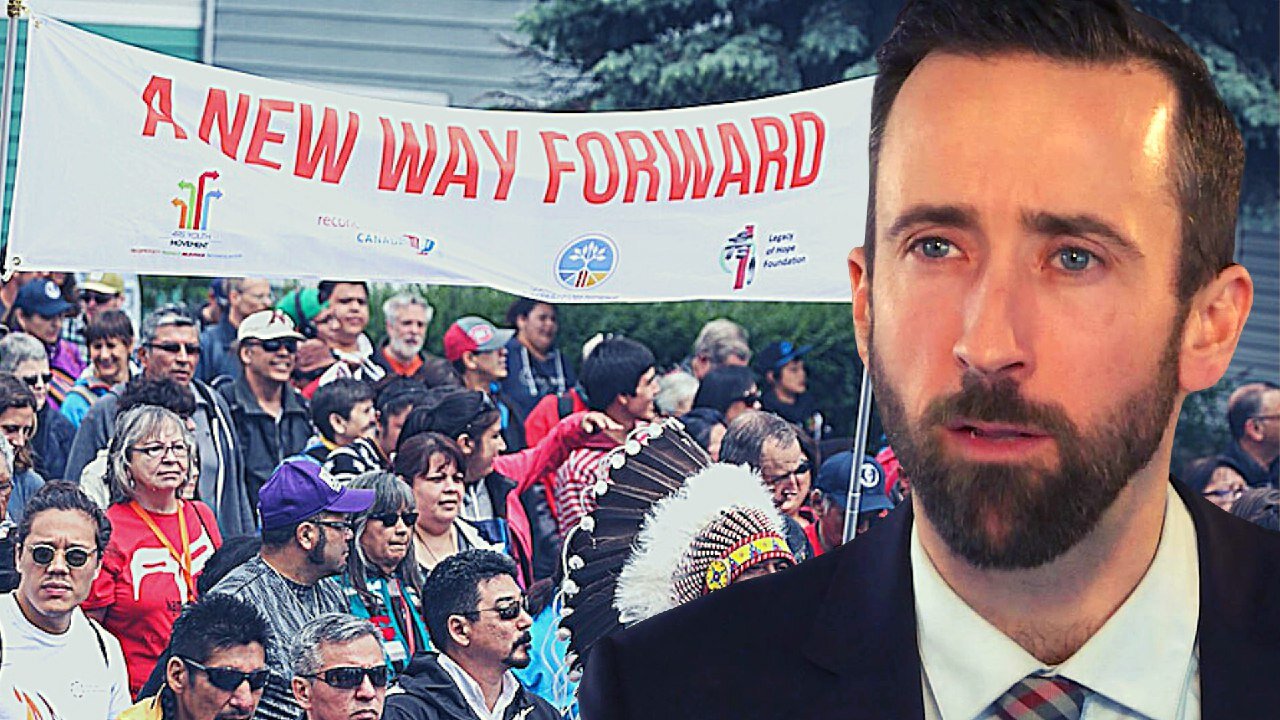Written By Guest User, Posted on May 8, 2020

Member of Parliament for Hastings-Addington and Lennox, and Conservative Party leadership candidate Derek Sloan talked to The National Telegraph regarding his views on several areas of policy. In this particular interview excerpt, Sloan spoke on Indigenous interests and his opinion on how reconciliation should proceed.
Sloan spoke to his vision for what reconciliation looks like in the long term, and how he perceives the government’s current policies on the matter. Frankly put, they are merely kicking the can down the road.
Sloan explained his position, stating, “For me, reconciliation has to have as its goal some sort of conclusion. I understand that the process is not simple, and it’s not fast. But it seems to me that there’s no endgame in mind other than sort of perpetual conversations here.”
Nailing down ownership of land in Canada, and adequately recognizing who has legislative power on Indigenous lands between elected councils and hereditary chiefs is something Sloan sees that lacks clarity.
In a follow-up statement, Sloan said, “We need to get to a point where we understand, okay; who has claimed what land? What does that claim entail from a legal perspective? And who has a say, over the rights to those claims?”
Sloan used the example of the issues caused during the Coastal Gaslink pipeline situation where political battles for authority ensued between the elected Wet’suwet’en band council and those who were declared hereditary chiefs. The federal government picked and chose who to listen to per their political convenience.
Without consultations, there is no prosperity. And without prosperity, there is no reconciliation.
Former Chief Jim Boucher speaks to his concerns around environmentalism today and the harm incurred by Indigenous Peoples.
Dated: January 18th, 2020#bcpoli #abpoli #cdnpoli pic.twitter.com/bAp0JWN9eO
— NatTelegraph (@NatTelegraph) February 12, 2020
“I understand that it’s a process within the community, but there has to be some law and order in terms of how [the decision] process happens,” Sloan said in response to the Coastal Gaslink situation. “We need to come to a point where we understand as a country what [reconciliation] even means and what we’re going to do about it.”
Because the federal government, in many ways, still exerts considerable control over Indigenous land despite their claim to self-governance. Sloan put forward that overtime claims to land need to be given to those who rightfully own it, and bucking the government’s overbearing control they currently hold over it.
Sloan went after what he sees as the Trudeau’s Liberals style of reconciliation, calling it just “talk” with Sloan wanting to see an economic reconciliation that helps support the economic development of Indigenous land.
He explained his general stance on the matter, stating that, “We need to make sure we can get things done, and on the point of reconciliation, I think that yeah, I mean talk goes a long way but providing economic opportunities, work, and money goes much farther. Right now, there’s a lot of empty talks, where projects that can provide realistic revenues and opportunities for these indigenous nations are just lying dormant.”
Economic reconciliation is a policy many Indigenous chiefs, and pipeline advocates have touted that The National Telegraph has interviewed in the past. This is because economic reconciliation is empowering to the Indigenous community.
Through the development of their peoples and the rejection of welfare-dependency, the federal government is reminded of its place in the grand scheme of things.
Blocking energy projects and boycotting the fur industry is a mere extension of their attitudes once relayed in the Indian Act that the federal government knows what’s best, from protecting one’s culture, their property, or ensuring the prosperity of one’s people.
Often, they leave us sorely disappointed, from siding with eco-colonizers to sharing condescending views of the First People’s – that is the antithesis of reconciliation.
As Sloan puts it, give Canada’s Indigenous communities their right to self-governance, and their economic liberation will follow suit.
Very well presented. Every quote was awesome and thanks for sharing the content. Keep sharing and keep motivating others.